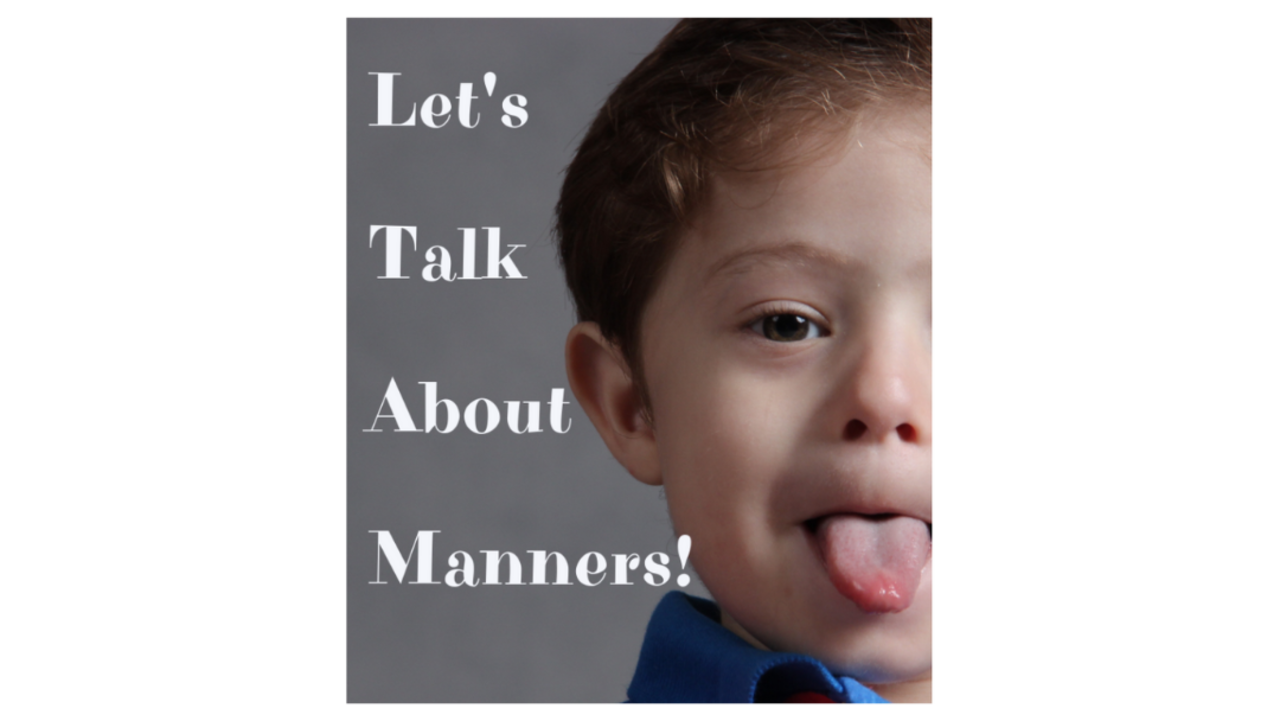Let's talk about manners
Sep 23, 2019
Usually the conversation starts with the 'right' reasons: they need to show respect, I want them to get along in the world, etc. But, at some point almost every mom brings up the worry about what other people will think. Will people want to be friends with her child? Will people think she's a bad mom, or has no backbone? It's downright embarrassing when your kid is rude!

First I want to say that BOTH of these types of reasons are valid, but one of them is sabotaging you in getting what you want.
Because one of the keys in getting kids to do anything is to be totally OK with them NOT doing it. If you can't stand it when your child behaves poorly, you are exponentially increasing their motivation to do it.
What to do instead? Here are my tips for getting kids' manners on track (just like all my work, you'll see a little mindset, management and momming in there):
1) Mindset - Leave Your Embarrassment at the door.
Once you're unfazed by your kid being rude and obnoxious once in a while, you are so much better positioned to do something effective about it (see the momming stuff below). This is easier said than done, because digging into this stuff usually reveals a mountain of toxic thoughts we carry around about how our child's behavior is a reflection of our value. That's the nonsense that sabotages us with our discipline efforts and keeps us trapped in mom guilt prison. Your kid has bad manners sometimes because that's what kids do. Period. It means nothing about you whatsoever.
2) Management - Prioritize values over image.
Decide which manners matter (try saying that 5 times fast!). Which are about respect and kindness, vs. which are about what others think? Focus on the former and leave the latter alone, for now. Example: saying please and thank-you is about respect and kindness. Eating with a fork instead of your fingers is nice, makes less mess, and is more dainty...but I suggest lowering it on the priority list (but still come back to it later). Creating a small core list of manners you will work on is far more manageable, and you can add to it over time.
3) Momming - Less words, more deeds.
Ideally we would love for our kids to be kind and caring because they understand and can empathize with the world around them. But, unfortunately kids don't develop empathy until later (and then they lose it again during adolescence), so don't take it personally when they behave like sociopaths, and don't fall into the trap of thinking that explaining why we need to be nice to others is going to be enough to change their choices. Experiences are the most effective teachers - let them experience what happens when they have good manners and what happens when they don't. The perfect example is getting them to say please. It couldn't be simpler: When you ask nicely for something, you are likely to get it. When you don't say please, you don't get it. Stick to your guns, don't get upset, and your child will be saying please in no time. Even works before kids are verbal, with sign language. Want a harder example? When my teenager rolls his eyes, complains about his chores, is a jerk at the dinner table and grunts his hello to houseguests, the answer to pretty much any request he makes of me is, "I'm happy to do that as soon as I feel you're being respectful and kind."
I like to say that good discipline isn't about getting your kid to do something; it's about how you respond when they don't. Manners are the perfect marriage of those ideas. Recognize it's OK for them to behave terribly and don't get embarrassed, then respond by providing great experiences that will encourage them to choose a different behavior next time.

